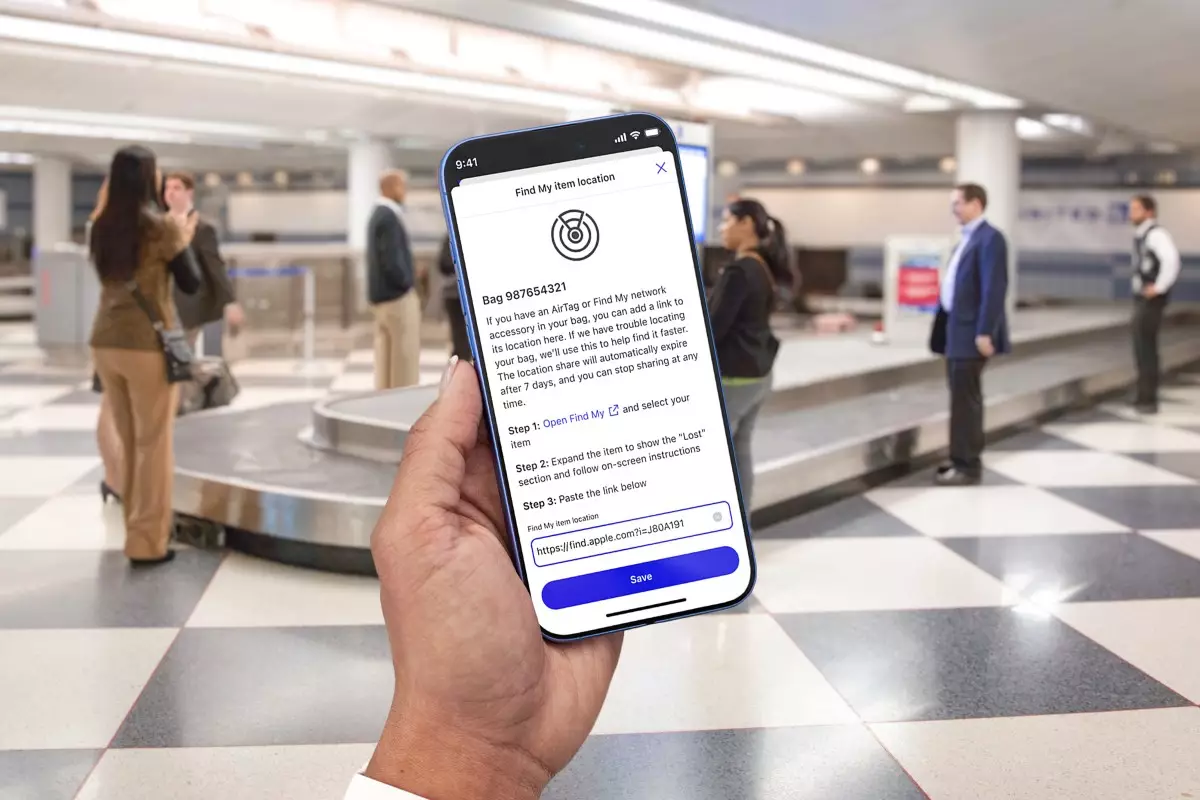Traveling can often be a stressful adventure, especially when it comes to luggage concerns. With the hustle and bustle during seasonal travel, the anxiety of misplaced bags is heightened. In a bid to solve these woes, Apple has introduced a groundbreaking feature for its AirTag users that integrates directly with the customer service systems of major airlines, starting with United and Air Canada. This feature, named the “Find My Share Item Location,” allows travelers to share their baggage’s location directly with airline representatives, transforming the way lost luggage is addressed.
This integration is timely, coinciding with the holiday travel surge where lost luggage incidents spike. By leveraging the capabilities of the Find My app, travelers can now generate a secure link showcasing the precise location of their AirTag-equipped items. This not only streamlines the retrieval process but also empowers customers, allowing them to be directly involved in the resolution of their luggage issues.
Utilizing Apple’s iOS 18.2 for iPhone and iPadOS 18.2, along with macOS 15.2, this feature is designed for ease of use. When an individual cannot locate their luggage, they can access the Find My app to create and share a location link with willing customer service personnel. This proactive step can significantly reduce the amount of time it takes for the airline to locate the missing bag, thereby enhancing customer satisfaction.
The security measures instilled in this feature are noteworthy. Apple has emphasized that the location-sharing function is confidential and will automatically cease once the customer retrieves their luggage, providing users with peace of mind regarding their privacy. Additionally, should a user wish to terminate the sharing at any point, they have that autonomy, reinforcing Apple’s commitment to consumer privacy. The links are not only time-sensitive, expiring after a week, but are also end-to-end encrypted to safeguard personal data.
The collaborative effort between AirTag technology and airline logistics is significant. It stems from real-world travel problems, where customers have previously experienced frustrating situations such as incorrectly tracked baggage. In one instance reported, a lost bag was indicated by an AirTag as being within the airport, while airline staff insisted otherwise, leading to a distressing delay in recovery. This partnership aims to minimize such occurrences by providing accurate information directly sourced from AirTags.
By officially incorporating AirTag locations into their operational framework, airlines like United are taking a commendable step towards improving their customer service. This tactic not only aids in resolving issues efficiently but also facilitates a greater level of transparency in operations. Passengers can feel empowered knowing they can directly contribute to the solution through the technology they carry.
While United and Air Canada are the first two airlines to benefit from this innovative feature, Apple has indicated that many others are in the pipeline. Nearly 20 airlines are reported to be on board for future collaborations, suggesting a growing trend towards integrating technology with traditional airline procedures. This shift holds promise for a future where the anxiety of traveling with luggage may be dramatically lessened as more airlines adopt similar systems.
In a world where technology continually shapes how we navigate everyday experiences, the AirTag integration with airline customer service systems offers a glimpse into a more connected and efficient travel experience. As Apple continues to develop partnerships with airlines, travelers can expect a more secure and reassuring journey, easing the age-old fear of lost luggage into a narrative of proactive tracking and customer engagement.

